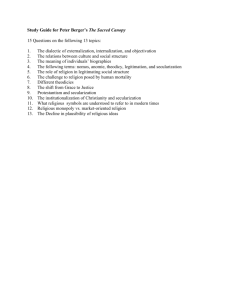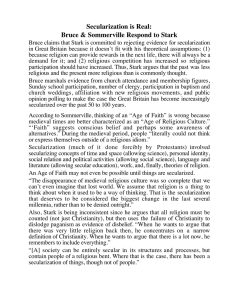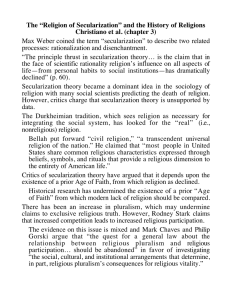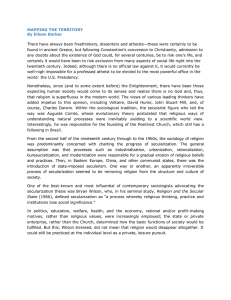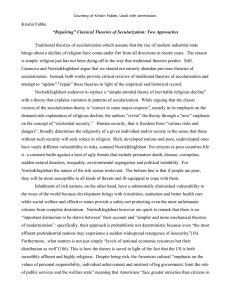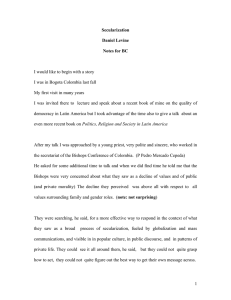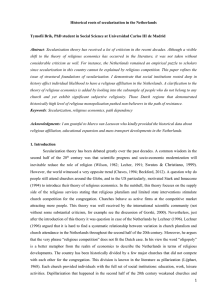Secularization, R.I.P.
advertisement
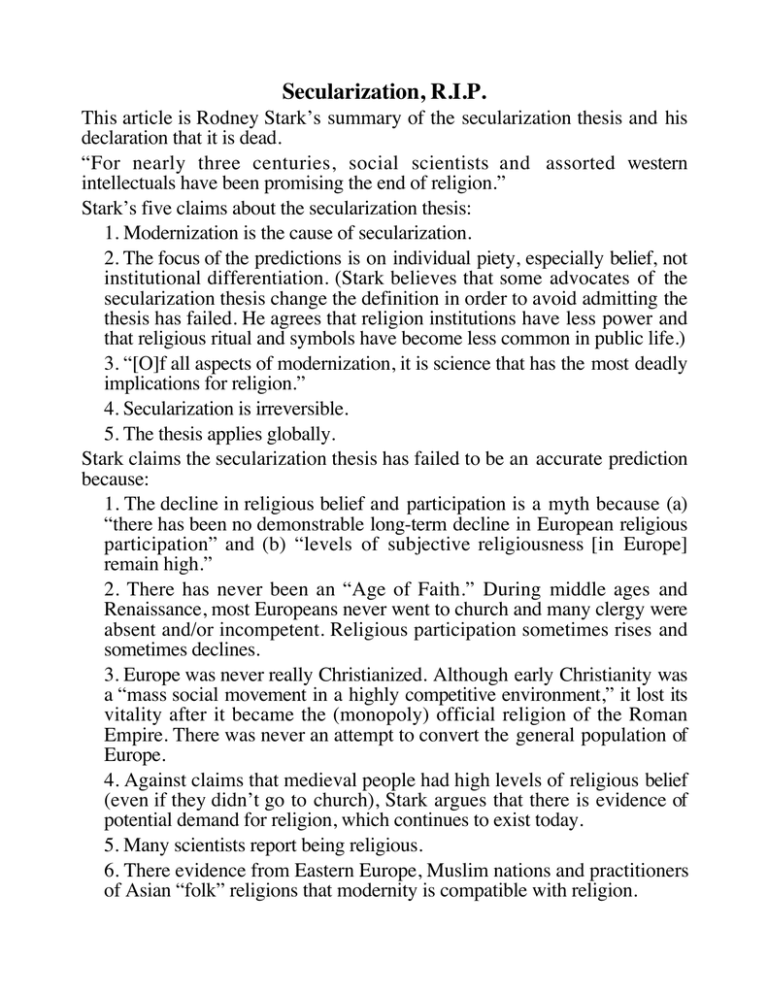
Secularization, R.I.P. This article is Rodney Stark’s summary of the secularization thesis and his declaration that it is dead. “For nearly three centuries, social scientists and assorted western intellectuals have been promising the end of religion.” Stark’s five claims about the secularization thesis: 1. Modernization is the cause of secularization. 2. The focus of the predictions is on individual piety, especially belief, not institutional differentiation. (Stark believes that some advocates of the secularization thesis change the definition in order to avoid admitting the thesis has failed. He agrees that religion institutions have less power and that religious ritual and symbols have become less common in public life.) 3. “[O]f all aspects of modernization, it is science that has the most deadly implications for religion.” 4. Secularization is irreversible. 5. The thesis applies globally. Stark claims the secularization thesis has failed to be an accurate prediction because: 1. The decline in religious belief and participation is a myth because (a) “there has been no demonstrable long-term decline in European religious participation” and (b) “levels of subjective religiousness [in Europe] remain high.” 2. There has never been an “Age of Faith.” During middle ages and Renaissance, most Europeans never went to church and many clergy were absent and/or incompetent. Religious participation sometimes rises and sometimes declines. 3. Europe was never really Christianized. Although early Christianity was a “mass social movement in a highly competitive environment,” it lost its vitality after it became the (monopoly) official religion of the Roman Empire. There was never an attempt to convert the general population of Europe. 4. Against claims that medieval people had high levels of religious belief (even if they didn’t go to church), Stark argues that there is evidence of potential demand for religion, which continues to exist today. 5. Many scientists report being religious. 6. There evidence from Eastern Europe, Muslim nations and practitioners of Asian “folk” religions that modernity is compatible with religion.
